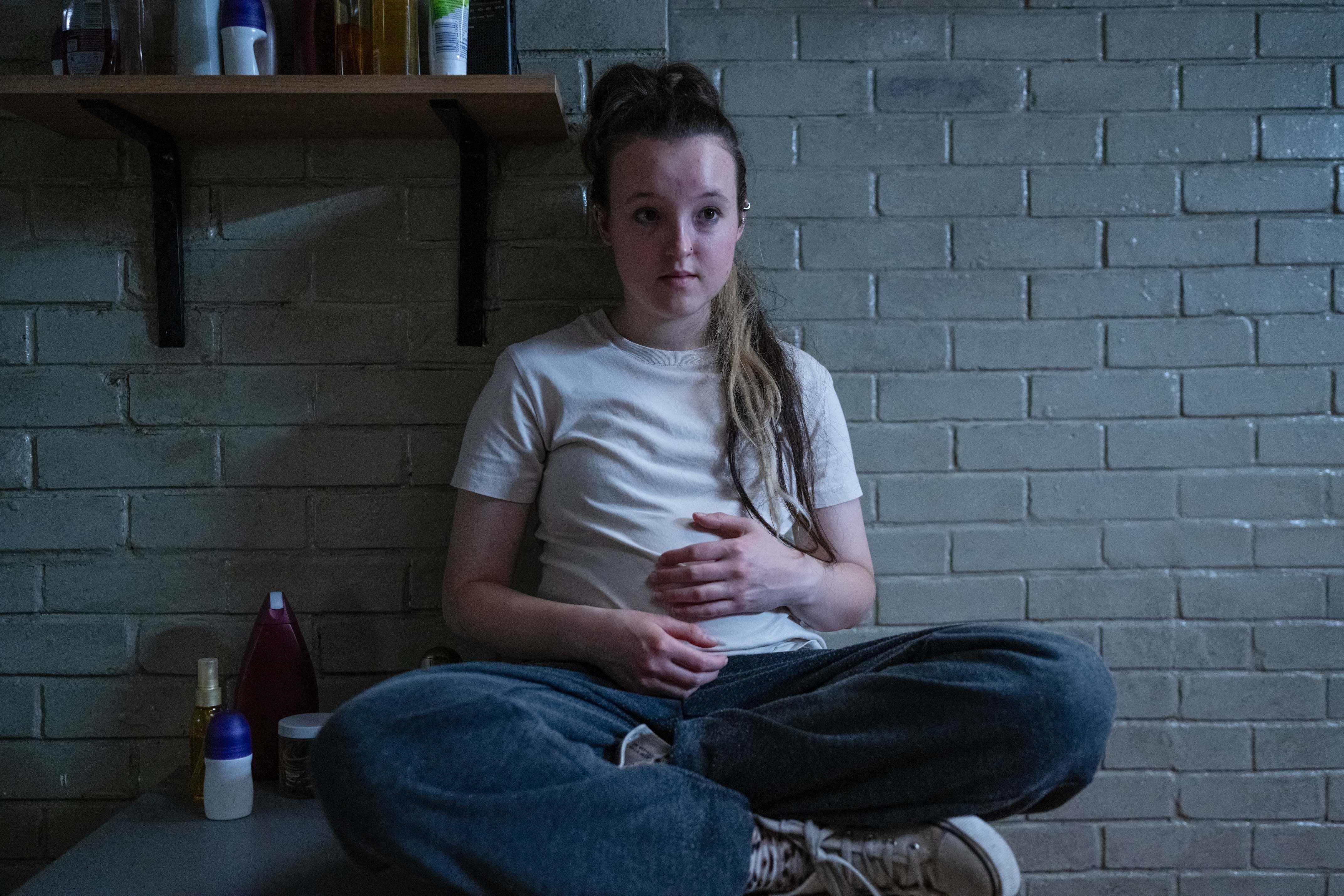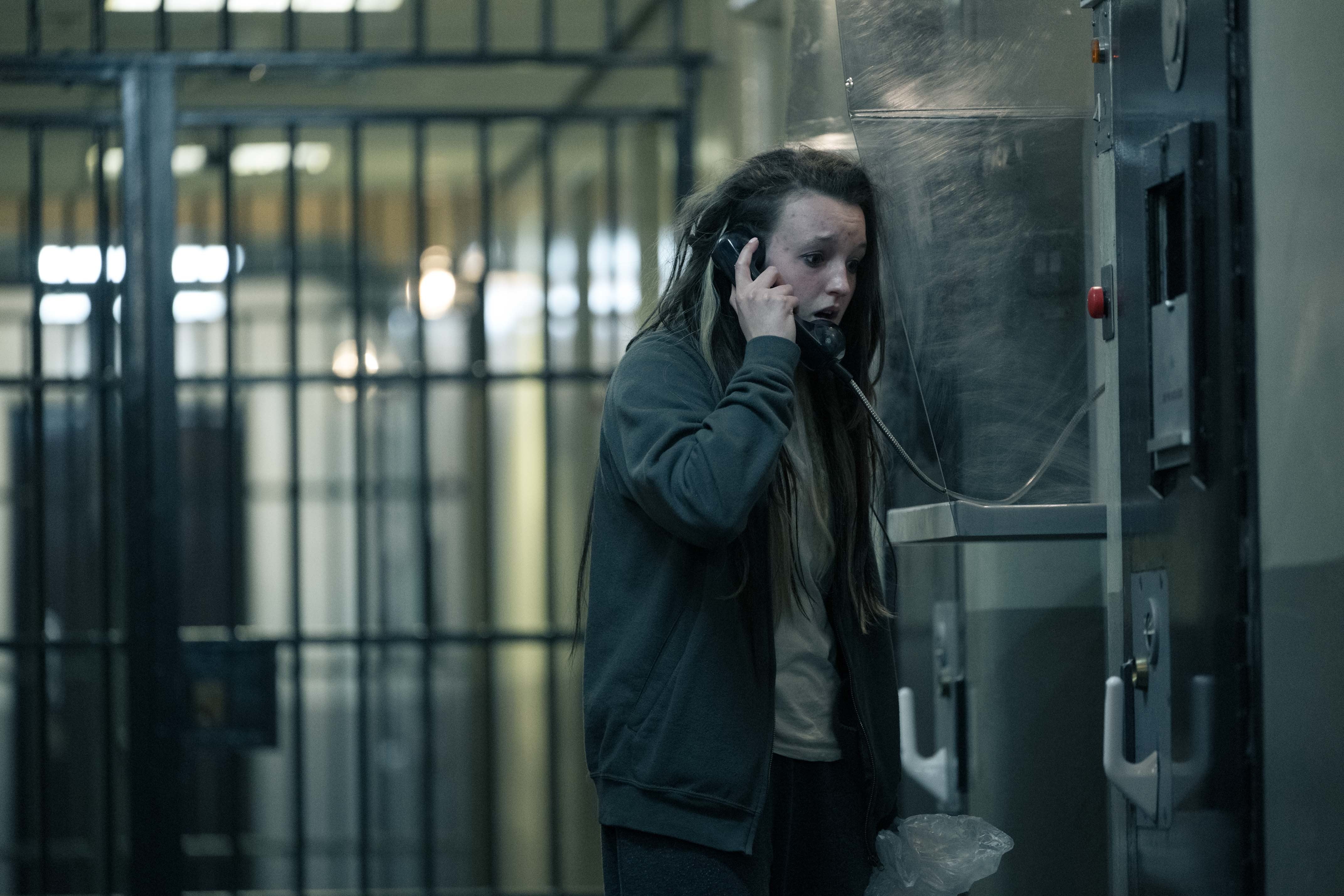Bella Ramsey in Time shows what I have seen up close in women’s prisons – and they’re worse than men’s
As a white, middle-class woman from the Home Counties, Jane Corry didn’t expect to spend so much time in women’s prisons. However, after 10 years of working with prisoners and hearing their painful stories, she has a new understanding of the difficulties many of them have had to face

It was her nails I noticed first. They were beautifully manicured, ruby red. Oval. She was sweeping the floor in the entrance hall of a high-security prison not far from London. “What are you here for?” she asked. I explained that I was there to do research for a novel I was writing. “I’m desperate to get out of this place,” she confided. “My lawyer’s launching an appeal.”
I wanted to ask what she’d done, but I knew this might not be considered respectful. “Respect” is a big word in prison. Trust me; you don’t want to be seen as “disrespecting” anyone. It’s a lesson vividly described in the TV drama Time, which stars the brilliant Bella Ramsey, who plays an addict giving birth inside. I had already worked at a high-security male HMP for three years, but this was my first visit to a women’s prison. And I can tell you, I’d rather be with men any day. It’s no surprise to me that viewers have described Time as even more traumatic than Ramsey’s other recent drama, The Last of Us.
As I walked around with a prison “minder,” I could almost touch the fragile frieze of fear, anger, frustration, depression, and panic that enveloped us. The “girl gang” pack mentality was present too, reminiscent of bullying at certain schools, only much darker. As a woman with a writer’s imagination, I could also too easily see myself behind bars without my children, queuing up for the corridor phone, desperately trying to talk to loved ones in a noisy visiting hall, with adrenaline pulsing through a body in a constant state of fight or flight.

One of the most traumatic experiences was visiting the Mother and Baby Unit with its brightly coloured play slides and toys. There are only six “MBUs” in the country, and they are usually for women who may be giving birth while serving a sentence or have young babies at the time of sentencing (they are allowed inside until they are 18 months, and not all applications are accepted).
Two young girls were sitting side by side. One was crying. “They’re taking her son next month,” explained the other. “He’s too old now, so he’s being fostered.” As she spoke, a chubby-kneed toddler came running up. The image haunts me still.
I was so affected by my experience that I offered to run free writing workshops and have now been a regular visitor for over 10 years. Research has shown how creativity can be vital to cope with trauma, and my time with these women has given me a unique insight into their lives; not just inside, but into the outside events that got them there in the first place too.
A government report last year showed that just 4 per cent of the prison population were female, but compared to men, a higher proportion of female prisoners reported mental health problems, disabilities, drug and alcohol problems, money, and housing worries. The number of instances of self-harm was more than twice as high for women. Meanwhile, 35 per cent were first-time offenders, with TV licence evasion and theft being the offences with the highest proportion of female offenders in 2021.

In my writing groups, the women came from various backgrounds; some had degrees. It’s noteworthy, that 15 per cent of females in prison achieved five or more GCSEs graded A* to C. I was immediately impressed by how quickly they opened up to me. As a white middle-class woman with a Home Counties accent, I wasn’t sure how well I’d be received. On one occasion, I was offered a cup of tea by a prisoner on kitchen duty. “Don’t worry, love. It hasn’t got anything in it. We used to have someone here who’d dip a used tampon in if she didn’t like you.”
And once the stories came, they didn’t stop. Many spoke about difficult childhoods. One woman said that she and her mother had been continually in and out of prison for credit card fraud, a skill they’d learned from the maternal grandmother. “It was like a job. It wasn’t like, ‘Well, are you going to work behind the till when you leave school?’ It was, ‘Are you going to do credit cards, shoplift, or steal cars?’”
Another told me that she could only wear trousers because her mom had bathed her as a baby and had been so out of it that she had forgotten to put cold water into scalding water. She was lucky to walk, but the scars would be there forever.
Prisons are notoriously noisy, but the sound level seemed louder to me than in the male prison I’d worked in. Once an alarm went off and we were shepherded swiftly into a safe room with a window that looked out into the main hub of the prison. I looked out and saw a woman walking past, shouting and screaming, looking distressed while carrying her bedding. I have no idea what the issue was, but a Criminal Justice Inspectorate’s report found that 82 per cent of women said they had some form of mental health problem, compared to 59 per cent of men, with a third saying they had felt suicidal.
At lunch, the stories would keep coming over plates of sandwiches. One woman described attacking her abusive husband. She went to prison. He didn’t. Another explained that she had been driving 10 miles over the limit after “a drink or two” and had seriously injured someone. It was her first offence. “My teenage kids don’t talk to me,” she said. “They are ashamed of me. I’m ashamed of myself, but I’m worried that their father isn’t going to check they’ve done their homework and make sure they’re home at night safely.”
Families can all too easily fall apart, especially if mothers are sent miles away from home, which often happens because of overcrowding. Again and again, I heard how grandmothers and sometimes great-grandmothers had stepped in to bring up the children. “I’m really grateful,” said one. “But I’ll have missed the best years of their lives.”
As in male prisons, women are put onto work parties like cleaning, cooking, and gardening. The latter is particularly popular because it’s outside. “I like planting bulbs in the spring,” one woman told me. “It’s like creating a new life.” Another prison I visited had a state-of-the-art hair salon where women were being trained so they could hopefully find work after release. With only 20 per cent of women who leave prison going into some form of employment, 73 per cent of those released from a custodial sentence of less than 12 months reoffend within a year. Could this be related, I wondered? It felt like many were offending to keep their family going.
Prisons are full of contradictions. Someone needs to watch the scissors in a salon, which could be used in an attack or act of self-harm. I was told of one suicide attempt where a woman had “filed” down her toothbrush by biting the stick end so she could cut her wrists. Others spoke of catfights and spats, sometimes fueled by hormones and menstrual cycles. One prisoner told me that she tried to keep away from her cellmate “at her time of the month” but that it was difficult in a small space.
Another confided that she’d miscarried shortly after coming into prison, a tragedy that she put down to the shock of going down when she’d hoped to “get off”. But the officers, she said, had been kind to her, and she’d been given medical help.
Writing can help to let out and make sense of many complex feelings. That’s why I volunteered to be a life-story judge for the Koestler Awards, which are given to prisoners every year for painting and writing. Once a year, for the last eight years, I’ve travelled to Wormwood Scrubs, where a small, busy hive of dedicated employees has been gathering exhibits from prisons all over the country. From spring onwards, they spend hours unpacking them (some artworks are very fragile, like this year’s life-size paper bicycle), numbering the entries, finding judges, and organising the exhibition at the South Bank, which opens tonight and will run until December.
The challenge is ploughing through hundreds of these life stories and deciding which deserves gold, silver, or bronze, and giving written feedback on each one is both daunting and a huge privilege. One thing I have learned is that a five-line entry in poorly written capital letters on a scrap of paper can be more moving than a thesis-sized manuscript.
I know from my time as a writer-in-residence how much effort goes into these entries, and how an award can change a life. As a former entrant put it: “I’d never have written like I have outside prison, and it’s kept me sane inside.”
Another said: “Taking part in the Koestler Awards gave me a sense of purpose. It allowed me to prove to myself what I’m capable of. It was uplifting, having my work appraised on its own merits, not connected to my status as a prisoner.”
I’m also painfully aware that many families might wonder why someone who had hurt their child, wife, husband, or friend should have the “privilege” of an award. But I will say this. If it helps someone go straight, some sort of right will hopefully emerge when those prison doors are finally unlocked. A full stop will have been placed at the end of a sentence.
Jane Corry is the author of ‘Coming to Find You’ (Penguin), £8.99. The Koestler Arts exhibition is now open to the public at the Royal Festival Hall, Southbank Centre, until 17 December; www.koestlerarts.org.uk






Join our commenting forum
Join thought-provoking conversations, follow other Independent readers and see their replies
Comments